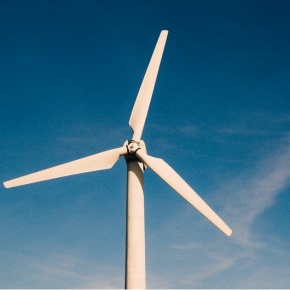
A zero carbon UK is achievable with business backing for clean technology
A new report from research organisation Centre for Alternative Technology (CAT) claims that the UK can become entirely self-sufficient for its energy needs, if businesses and policymakers can demonstrate a strengthened support for existing low-carbon technologies.
The transport, building and energy sectors are examined by the report, to identify the changes required to move the UK onto a zero-carbon pathway, thereby creating thousands of green jobs and bringing great economic, environmental and social opportunities to the UK.
CAT Project Coordinator Paul Allen has expressed the importance of providing clear evidence that workable solutions already exist, as it gives policymakers no excuse for inaction and empowers citizens.
Decarbonising transport
About a quarter of the UK’s domestic greenhouse gas emissions are contributed by transport, which is the only major sector where emissions are gradually rising.
The transportation sector could help to tackle climate change and reduce the estimated health costs from air pollution with decarbonisation of the sector.
The paper highlighted that all cars, light vans and buses will need to be electric, hydrogen or run on biofuels in order to achieve a shift towards a zero-carbon transport industry.
In addition, it states that policy measures such as more integrated urban and transport planning, high quality infrastructure and services, and economic incentives would aid the addressing demand for air travel and car dependency.
Economic benefits of £8.7bn could be generated to for the UK economy with an energy efficiency programme, CAT claims.
For the country to meet its climate change targets, the report states that around a 50% reduction in energy demand from buildings is required along with a switch away from fossil fuel powered heating systems to zero-carbon technologies.
Low-carbon living
The report proposes retrofitting the entire existing building stock and switching to zero-carbon heating and highly efficient lighting to reduce heating demand by at least 60% from 2010 levels. Carbon emissions would be reduced by flexible energy demand in buildings that involves increased amounts of energy storage, as would low-carbon construction materials.
Despite the fact that the country is not on track to meet its target to generate 15% of its energy from renewables sources by 2020, the UK has good natural resources for low-carbon energy development, the research shows.
It is insisted in the report that the UK can meet its energy needs with 100% renewable energy by scaling up installed systems such as wind, solar and tidal technology. In addition, it calls for the repurposing of some land to grow biomass needed for parts of a 100% renewable energy system.
Latest news

29th April 2025
Senior pledges to ‘bee’ part of the solution with new biodiversity initiative
Senior Architectural Systems has installed its first on-site beehive, marking another step forward in its commitment to sustainability and biodiversity.
Posted in Articles, Building Industry News, Building Products & Structures, Building Services, Curtain Walling, Doors, Glass, Glazing, Innovations & New Products, news, Restoration & Refurbishment, Retrofit & Renovation, Sustainability & Energy Efficiency, Walls, Windows
29th April 2025
West Fraser range delivering key benefits for South-East carpentry company
An experienced carpenter and building site manager who has recently set up his own company is using high performance panel products from the West Fraser range.
Posted in Articles, Building Industry News, Building Products & Structures, Building Systems, Case Studies, Garden, Restoration & Refurbishment, Retrofit & Renovation, Sustainability & Energy Efficiency, Timber Buildings and Timber Products
29th April 2025
CPD Courses Available Online From Ecological Building Systems
Ecological Building Systems, a leading supplier of natural building products for sustainable construction, has revealed its comprehensive CPD programme for the year ahead.
Posted in Articles, Building Industry Events, Building Industry News, Building Products & Structures, Building Services, Continuing Professional Development (CPD's), Information Technology, Innovations & New Products, Insulation, Restoration & Refurbishment, Retrofit & Renovation, Seminars, Sustainability & Energy Efficiency, Training, Walls, Waste Management & Recycling
29th April 2025
WindowBASE launches new prospect databases at FIT Show
Visit WindowBASE at the FIT Show to see first-hand how it helps companies find new customers – the company is launching an easy-to-use, intuitive platform on Stand G16 at the NEC Birmingham from 29th April – 1st May.
Posted in Articles, Building Industry Events, Building Industry News, Building Products & Structures, Building Services, Doors, Exhibitions and Conferences, Glass, Glazing, Information Technology, Innovations & New Products, Posts, Publications, Research & Materials Testing, Restoration & Refurbishment, Retrofit & Renovation, Windows
 Sign up:
Sign up: